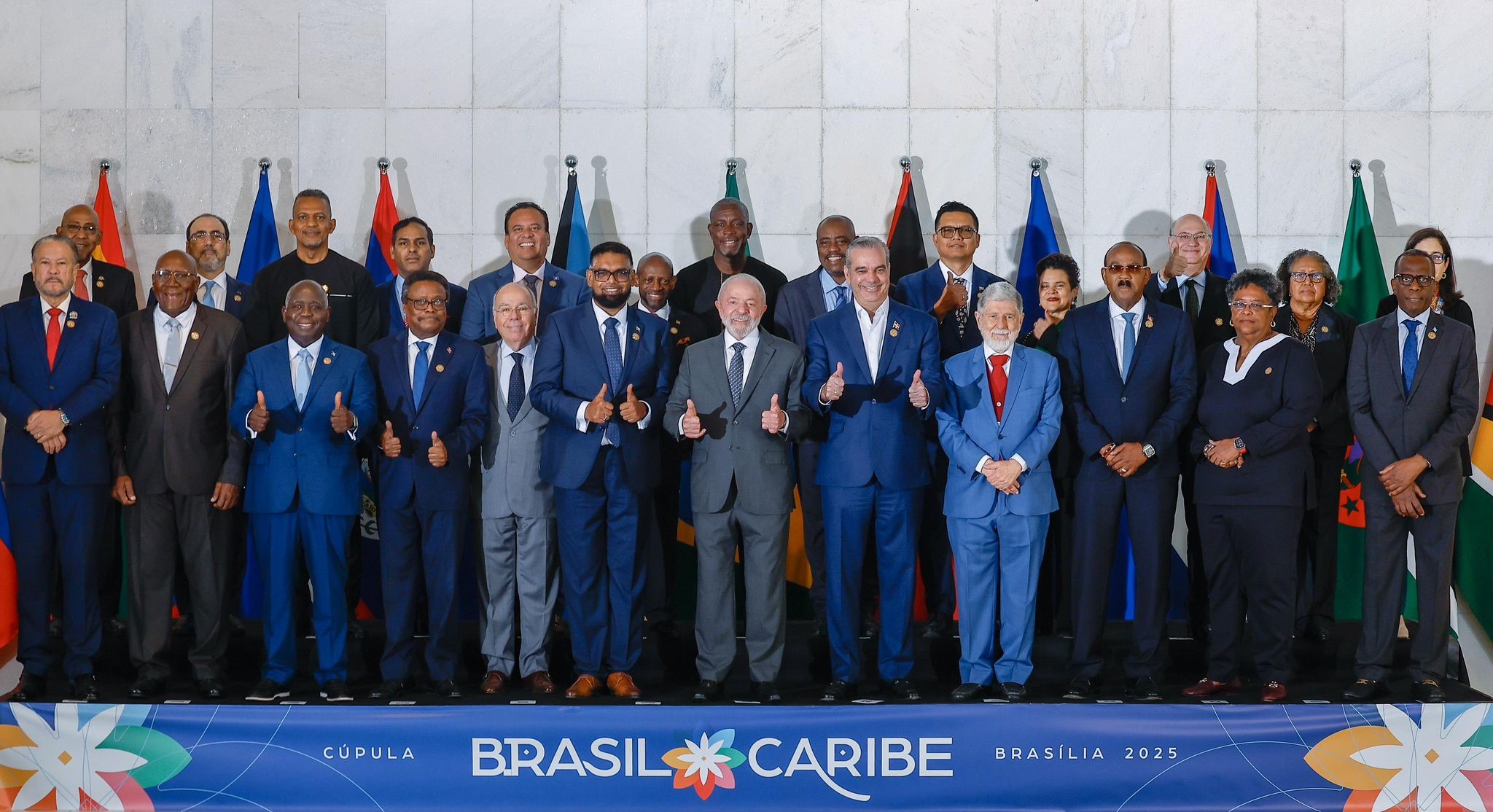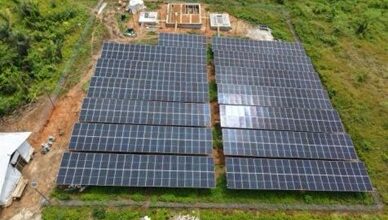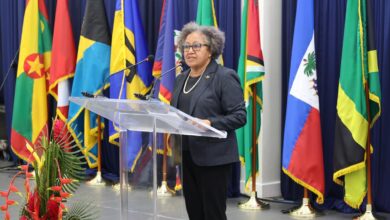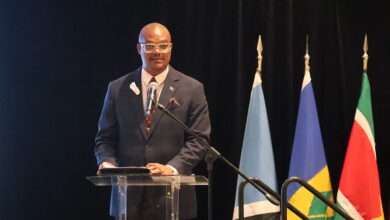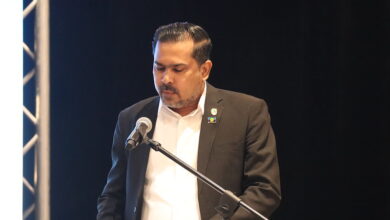1.We, the leaders of Brazil and countries of the Caribbean, met in Brasilia, on 13 June 2025, to address issues of common interest and strengthen channels of dialogue and mutually beneficial cooperation. The attendance of a significant number of Heads of State and Government, senior officials, as well as chief administrative officers of regional organizations, illustrates the importance attached by the participants to the Brazil-Caribbean Summit.
2. The Summit provided a platform for dialogue on global and regional issues, facilitating increased coordinated action in international organizations and promoting regional integration. Above all, it represented an opportunity for the development of stronger cooperation between Brazil and countries of the Caribbean.
3.1n this regard, we reaffirm our commitment to strengthening the Community of Latin American and Caribbean States (CELAC) as the primary political consultation mechanism that brings together all the countries of the region. We are determined to advance the process of regional integration, promoting the unity and diversity of our peoples, with the aim of strengthening Latin America and the Caribbean as a community of sovereign nations. We are committed to building consensus on issues of common interest, contributing to the well-being and sustainable development of the region, and maintaining Latin America and the Caribbean as a Zone of Peace.
4.We emphasize the crucial role of regional financial institutions, such as the Caribbean Development Bank, the Development Bank of Latin America and the Caribbean (CAF), and the Inter-American Development Bank, in promoting integration through different projects and programs in a wide range of sectors.
5.The Brazil-Caribbean Summit took place at a complex geopolitical juncture and enabled fruitful discussions on food security and nutrition, including water management; climate change; energy transition; disaster risk management; and connectivity; among other pressing issues.
Food security and nutrition, including water management
6.We express our commitment to deepen our cooperation on food security and nutrition, including water management, based on solidarity, mutual learning, shared experiences and the principles of South-South and trilateral cooperation.
7. We underscore the need to promote enhanced food security and nutrition by diversifying the suppliers of agricultural products and by providing more affordable food for our populations. In this regard, we agree to take steps to safeguard market access to key trading partners, while upholding the principles of free and fair trade.
8. We recognize the vital role played by fisherfolk, smallholder and family farmers — in particular rural women and youth — in ensuring global food security and nutrition, and underscore the need to transform agrifood systems to become more resilient, socially inclusive, and sustainable, while promoting the conservation and sustainable use of biodiversity.
9.We highlight the vital role of sustainable fisheries and aquaculture in achieving food security and nutrition in Brazil and countries of the Caribbean, while supporting the livelihoods of millions. We recognize aquatic food systems as engines for inclusive growth, climate resilience, and poverty reduction and express our commitment to enhancing sustainability and maximizing the contribution of fisheries and aquaculture to employment, economic diversification, and ecosystem restoration.
10.We reaffirm the importance of working together to advance food security and nutrition in our regions, including through mechanisms such as the Global Alliance Against Hunger and Poverty and the CARICOM Agrifood Systems Agenda, as well as to deliver concrete and measurable results. This includes efforts to improve access to development financing and to strengthen cooperation in areas such as cash transfer programs, school feeding, water management, among others.
11.We acknowledge the converging priorities between the CELAC Plan for Food and Nutrition Security and the Eradication of Hunger 2030 and the aforementioned mechanisms, and emphasize the need, as appropriate, to enhance synergies between these initiatives to contribute to implementing effective policies in the region, with a view to reversing recent setbacks, accelerating progress toward the Sustainable Development Goals, in particular SDG 1 (no poverty) and SDG 2 (zero hunger).
12.We recognize the potential of the Sustainable School Feeding Network for improving school feeding programs and policies in the region, strengthening sustainable food systems, combating food insecurity and promoting human development. Countries of the Caribbean that have not yet joined the Network are encouraged to do so.
13.We call for increased collaboration on expanding institutional food procurement programs, national school feeding schemes, technical support to sustainable fisheries and aquaculture activities, and public policies to promote smallholder, family farming and rural development.
14.We encourage greater investment in regional integration efforts, particularly in infrastructure for food production, food reserves, processing and distribution, equitable access to climate finance, technologies and capacity-building programs.
15. We encourage enhanced efforts to strengthen the region’s food storage capacity as a means of reducing vulnerability to external shocks. We further encourage greater political will and increased financing to support these efforts, which align closely with the FAO Strategic Framework 2022—2031.
16.We also encourage cooperation between Brazil and countries of the Caribbean on initiatives in the area of sustainable water management, including through the exchange of best practices, taking into account national legislation and contexts. We also recognize the importance of cooperation between Brazil and countries of the Caribbean with respect to the modernization of water management policies to effectively address the current challenges confronting the water sector, recalling that water is essential for achieving the 2030 Agenda. We are open to promoting actions related to SDG 6, particularly in projects focused on clean water and sanitation.
Climate change
17. We recognize that climate change represents one of the greatest challenges of our time that must be addressed as a priority, and we urge the international community to unite efforts to tackle global warming, as well as to ensure the protection of all ecosystems, including oceans and seas.
18.We reaffirm our commitment to multilateralism and to broadening, deepening and diversifying coordinated efforts towards strengthened and effective global governance for the implementation of the principles and goals enshrined under the United Nations Framework Convention on Climate Change (UNFCCC), its Kyoto Protocol and its Paris Agreement.
19. We commit to accelerate climate action in this critical decade on the basis of the best available science, reflecting equity and the principle of common but differentiated responsibilities and respective capabilities in light of different national circumstances and in the context of sustainable development and efforts to eradicate poverty.
20. We also reaffirm the pursuit of “Mission 1.5” to significantly enhance international cooperation and the international enabling environment to strengthening action and implementation over this critical decade and keeping the goal of limiting global warming to 1.5 o c above its pre-industrial level within reach.
21.We recognize the specific needs and special circumstances of developing country Parties, especially those that are particularly vulnerable to the adverse effects of climate change, such as Small Island Developing States (SIDS) in the region, as provided for in the UNFCCC and the Paris
Agreement thereunder.
22.We emphasize that finance, capacity-building, technology transfer and innovation are critical enablers of climate action and underscore the importance of urgent delivery of means of implementation by developed countries for developing country Parties, reaffirming the support to the COP29 and COP30 Presidencies guidance, in consultation with Parties, towards the “Baku to Belém Roadmap to 1.3T” to scale up needed climate finance to developing country Parties.
23. We commit to help create and deliver a full menu of financing options to accelerate private and public investment through, inter alia, results-based payments, concessional finance, as well as enhancing cooperation through high integrity carbon markets, as appropriate, in line with the multilateral agreements and the different national priorities and circumstances. In this context, we look forward to the launch of the Tropical Forests Forever Facility, an innovative and large-scale incentive for developing countries to conserve and restore their rainforests.
24.We recognize the potential of a technical cooperation project related to climate change mitigation within the framework of Brazil’s trilateral SouthSouth cooperation programs, to address a specific demand from the Caribbean countries. This project aims at customizing, for countries of the Caribbean, the Brazil Data Cube platform to generate remote sensing imagery data cubes, enabling the analysis of time series of images for monitoring ocean encroachment in nearshore and coastal areas using artificial intelligence. The technical expertise will be provided by the Brazilian National Institute for Space Research.
Energy transition
25. We recognize the urgent need for advancing clean, sustainable, just, affordable and inclusive energy transitions, through various pathways in light of different national circumstances, for contributing towards achieving our sustainable development goals as well as net-zero greenhouse gas emission by or around mid-century, in a just, orderly and equitable manner, and in the context of sustainable development and efforts to eradicate poverty, taking into account the relevant decisions, including the outcome of the Global Stocktake at COP28.
26.We recall the importance of energy security and the need to increase energy access and affordability to our populations, especially those most vulnerable, such as SIDS.
27.We underscore the need to catalyze and scale up investment and the provision of resources from multiple financial sources and channels for bridging the funding gap for energy transitions and reaffirm that developing countries need to be supported in their transitions, in accordance with relevant provisions under the UNFCCC.
28.We acknowledge the important role of domestic energy planning, capacity building, policy strategies and frameworks, as well as cooperation between different levels of government, in creating enabling environments to attract financing for energy transitions. In this context, we note the creation of the Global Coalition for Energy Planning, whose first summit took place earlier this month in Rio de Janeiro, and its goal to support domestic energy planning capabilities.
29. We underscore the crucial role of technologically neutral, integrated, and inclusive approaches to develop and deploy a variety of low-emitting energies, sustainable fuels and technologies, including for abatement and removal, carbon management, and emission reduction, with a view to creating scale and global markets to accelerate energy transitions, particularly in hard-to-abate sectors. We encourage, as appropriate, the use of mutually recognized methodologies and standards for assessing greenhouse gas emissions. We also emphasize the importance of financing and facilitating the transfer of these technologies to developing countries.
Disaster risk management
30.We commit to increase cooperation on comprehensive disaster risk management, including fire-related disasters, through the exchange of knowledge, technologies and resources, and the development of early warning systems, to increase the resilience of communities and guarantee the protection of the environment and the safety of populations.
31.We stress the importance of regional cooperation in disaster risk management, placing special emphasis on SIDS of the Caribbean, which suffer the greatest proportion of the impacts of the climate crisis, coordinating existing convergences in different regional and sub-regional organizations, including the Caribbean Disaster Emergency Management Agency (CDEMA), in an effort to take advantage of the potential of each one. Likewise, we express our willingness to work together to promote disaster risk management on a regional scale.
32.We note the importance of the CELAC Fund for Climate Adaptation and Comprehensive Response to Natural Disasters (FACRID), taking into account the serious impact of climate change and the effects and aiming at implementing projects for prevention and disaster response in the region.
Connectivity
33.We express interest in strengthening existing partnerships and exploring new opportunities towards comprehensive cooperation and closer economic partnership to facilitate trade, tourism, investment, connectivity as well as people-to-people contacts.
34. We acknowledge the Brazilian government’s “Integration Routes” project and, in particular, the one concerning Brazil’s Northern Region, which aims to improve transportation infrastructure and physical connectivity, with possible positive repercussions in terms of increased trade with the Caribbean.
35.We note that some participant countries to the Brazil-Caribbean Summit are in the process of signing open skies bilateral agreements and hope that this institutional framework may encourage companies to explore nontraditional routes and improve air connectivity, promoting tourism and business ties.
Other issues
36.We express our grave concern over the multidimensional crisis that affects Haiti and the ongoing deterioration of its security, humanitarian, and economic situation, where the population continues to suffer the consequences of extreme and persistent violence perpetrated by heavily armed criminal gangs. We take note of the proposal of United Nations Secretary-General on the possible role the UN could play in Haiti, presented to the Security Council on 24 February 2025. We reaffirm our support to the
national, regional and international efforts to find pacific, inclusive and sustainable solutions to the crisis, convinced that any solution to the current crisis must be Haitian-led, and call for the UN to have a leading and central role in the response to the pressing security challenges facing Haiti. We call on the international community to support the Haitian interim government’s endeavors to dismantle the gangs, put in place the foundations for longlasting social and economic development, and hold elections, as soon as security conditions permit.
37.We are equally concerned about the increasing measures against Cuba and underline the need to put an end to the unjust economic, commercial and financial embargo imposed by the United States of America. We reject the arbitrary and unjustified re-inclusion of Cuba on the unilateral list of state sponsors of terrorism and express our call for Cuba to be immediately removed from this list.
38. We recognize that the massive influx of sargassum has caused significant damage and high costs to the tourism and fishing sectors, harmed coastal ecosystems, affected energy systems, and poses a risk to human health in the entire Greater Caribbean region. We stress the urgency to address this phenomenon and ensure intersectoral collaboration through the support of innovative initiatives for the management and valuation of sargassum.
39.We note with satisfaction that educational cooperation between Brazil and countries of the Caribbean has been increasing in recent years, as illustrated by the growing participation of Caribbean students in Brazilian student mobility programs, such as the Program for Partner Students (PEC) and the “Move la América” program, in addition to educational partnerships with other actors. We welcome the fact that, in the current year, Brazil concluded the process of signing educational cooperation agreements with all the countries of the Caribbean and the Americas as a whole.
40.We recognize the intrinsic value of culture as a driver of sustainable development, encompassing creativity, innovation, inclusive economic growth, decent job creation, and income generation, as well as social cohesion and environmental protection; and encourage the inclusion of culture as an independent objective in the post-2030 development agenda.
41.We aim to increase our cultural exchange, including through the sharing of experiences and best practices, and also in advocating for and promoting cultural expressions related to local communities, Indigenous Peoples, people of African descent, among others. In particular, we underscore the importance of African heritage in our societies.
42. We commit to promote gender equality and the empowerment of women and girls, and to combat all forms of discrimination, including racism and racial discrimination, to achieve sustainable development, especially for the realization of a more just, equitable and sustainable world.
43.We welcome the signing of the Basic Agreement on Technical
Cooperation between Brazil and the Association of Caribbean States, in January 2025, in addition to the Agreement on Technical Cooperation between Brazil and the Caribbean Community, signed on the occasion of the Brazil-CARICOM Summit, in April 2010, whose Joint Commission met in
April 2025 to discuss its implementation.
44.We highlight the importance of the election and subsequent assumption of Albert Ramdin as Secretary-General of the Organization of American States for the 2025-2030 term, the first representative of a Caribbean country to hold the position.
45. Guided by the principle of fostering dialogue in the region, Brazil and the Bahamas have launched candidacies to the Inter-American Commission on Human Rights, mandate 2026-2027. Taking into account the longstanding cooperation between our countries, Brazil and the Bahamas count on the participants to the Brazil-Caribbean Summit to consider to support their candidacies.
46.We celebrate Brazil’s hosting of the Caribbean Development Bank’s 55th Annual meeting in Brasilia, where Governors discussed issues such as climate change, inclusive development and resilient institutions, highlighting the possibilities of cooperation between Brazil and the Caribbean region. We congratulate the President of the CDB, Daniel Best, and the Chair of the Board of Governors, Viviane Vecchi, for their capable stewardship of the meeting.
47.1n order to follow-up on issues discussed at the Summit, we agree, without prejudice to any other existing cooperation mechanisms that the region may have with Brazil, that a Brazil-Caribbean Forum should meet every two or three years, at ministerial level, alternatively in the Caribbean and Brazil, with the aim of contributing to achieving concrete results in the thematic areas identified.
BRAZIL-CARIBBEAN SUMMIT
STATEMENT ON CLIMATE CHANGE AND THE COP30
1. We, the leaders of Brazil and countries of the Caribbean, met in Brasilia, on 13 June 2025, and issued the following statement on climate change and the 30th Conference of the Parties (COP30) to the United Nations Framework Convention on Climate Change (UNFCCC).
2. Recognizing climate change as one of the greatest challenges of our time, we note with concern that 2024 was the warmest year on record globally, and the first calendar year that the average global temperature exceeded 1.5 0C above its pre-industrial level. The scale and gravity of climate change and its growing impact on people’s lives poses an existential threat to humankind.
3. Climate change is of special concern for the Caribbean, as the region is heavily affected by natural disasters, exacerbated by sea level rise and saltwater intrusion, making it urgent to address those specific needs and circumstances. We recall the recognition of Small Island Developing States (SIDS) under the Paris Agreement as being among the particularly vulnerable and deserving of special consideration.
4. We acknowledge that our response to climate change must be global, in line with the principle of common but differentiated responsibilities. We urge all Parties, particularly developed country Parties, to fulfill their continuously unmet commitments with regard to emissions reductions and their obligations in providing support to developing country Parties, including climate finance.
5. We recognize that the new cycle of Nationally Determined Contributions (NDCs) represents a good opportunity to renew all Parties’ commitment to the global action required for implementing the UNFCCC and its Paris Agreement. We acknowledge the efforts made by countries in the region to submit their updated NDCs, including the submissions already made by Saint Lucia, Cuba and Brazil.
6. We must remain united in our global fight against climate change more than ever, upholding the UNFCCC and its Paris Agreement as the cornerstone of our collective efforts to limit the temperature increase to 1.5 0C. We reaffirm the pursuit of “Mission 1.5” to significantly enhance international cooperation and the international enabling environment to stimulate ambition, with a view to strengthening action and implementation over this critical decade and keeping 1.5 0C above pre-industrial level within reach.
7. We note that the Sixth Assessment Report of the Intergovernmental Panel on Climate Change states that international cooperation is a critical enabler for achieving ambitious climate action, encouraging development, and implementation of climate policies, particularly for those who have significant capacity constraints. International cooperation shall aim to strengthen respective capabilities and institutions in all countries.
8. We must scale up efforts to build resilience through meaningful adaptation plans and put adaptation at the center of climate action in this critical decade. In the context of the increasing frequency and intensity of extreme events, we emphasize the urgency to address loss and damage caused by the adverse impacts of climate change and strengthen the loss and damage response under the UNFCCC to support developing countries. We welcome the launch of a start-up phase for the Fund for Responding to Loss and Damage in which half of available funds will be for Small Island Developing States and Least Developed Countries (LDCs). We emphasize the importance of ensuring the accessibility, predictability and adequacy of finance for addressing loss and damage, particularly for SIDS and LDCs.
9. We call for significantly scaled-up climate finance, including increased access to concessional finance and grants, to support mitigation, adaptation and loss and damage responses in developing countries. We urge the proper capitalization of climate funds, and the financial reform needed to scale adaptation in developing countries. We reaffirm that adequate financing, robust capacity-building initiatives and technology transfer are critical enablers of climate action and essential to empowering all countries in their climate responses and resilience. In this regard, we call for greater financial and technical support.
10.We reaffirm our support to the Presidencies of the 29th and 30th COPs for guiding the “Baku to Belém Roadmap to 1.3T” to scale up needed climate finance to developing countries. The Roadmap must serve as a tool for leveraging finance to low-carbon and climate-resilience pathways in developing countries, recalling that IPCC’s alerts on the urgency of climate action are centered on findings that finance, technology, and international cooperation are critical for accelerated climate action. It is an urgent requirement to enhance the scale and speed of climate finance according to the needs of developing countries, including through the immediate reform of the international financial architecture. The unique vulnerabilities and special circumstances of SIDS must be adequately considered in financial decisions.
11. We commit to help create and deliver a full menu of financing options to accelerate private and public investment through, inter alia, results-based payments, concessional finance, as well as enhancing cooperation through high integrity carbon markets, as appropriate, in line with the multilateral agreements and the different national priorities and circumstances. In this context, we look forward to the launch of the Tropical Forests Forever Facility, an innovative and large-scale incentive for developing countries to conserve and restore their rainforests.
12. We stress the essential role of the oceans as climate regulator and carbon dioxide sink and their importance to the mitigation of global warming. We highlight their contribution to the adaptation and resilience to the adverse effects of climate change. We encourage the inclusion of ocean-based measures in national climate policies.
13. We recognize that climate change-related sea level rise disproportionately affects SIDS and coastal communities, especially in developing countries, and reaffirm our commitment to cooperate and support communities particularly vulnerable to its impacts.
14. We affirm the importance of climate justice when taking action to address climate change and emphasize that just transition processes are directly related to promoting sustainable development, eradicating poverty and reducing inequalities, between and within countries.
15. We acknowledge the vital contributions of people of African descent embodying traditional ways of life, preserving shared knowledge systems, and maintaining deep connections with their lands in the efforts to achieve sustainable development.
15. We also recognize that groups such as Indigenous Peoples, local communities, women, youth, children, and persons with disabilities are often disproportionately affected by the adverse impacts of climate change. At the same time, they are among the most active and resilient agents on the frontlines of climate action. As such, just transitions to a low-carbon future should address their needs and circumstances.
16. We welcome the hosting of the COP30 in Belém, Brazil, from 10 to 21 November 2025, for the first time in the Amazon region. We will join efforts to transform COP30 into a movement of financial, technological and social transformations towards a new era in the global fight against climate change

